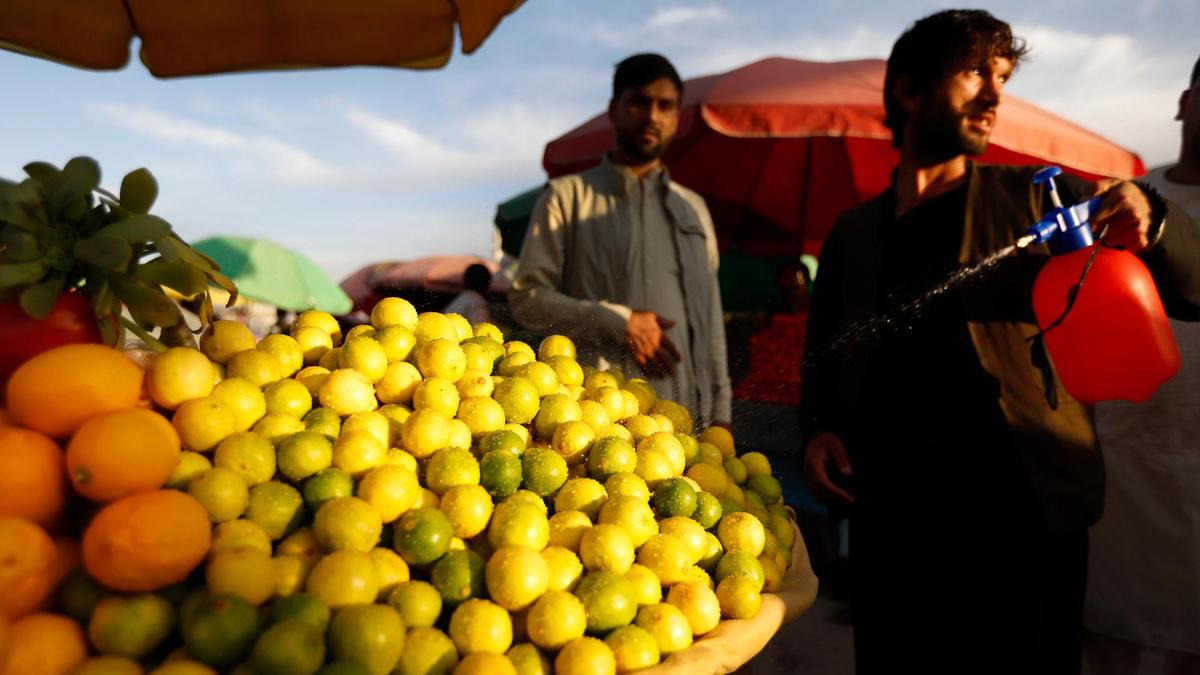As the sun set, we hurried through the streets of Dasht-e-Barchi on the western edge of Kabul. Our host, 40-year old Baqir Sangari, had called several times to check the instructions to his house in the largely Hazara Shiite community.
Arriving a few minutes after iftar, we were welcomed by Baqir and invited to sit for the wide and colourful spread of food. Baqir’s wife, Momina Sangari, four daughters and two sons sat waiting to start despite not having eaten since the sun rose many hours ago.
“There is a saying, the more people join you for iftar, the better the food will taste,” Baqir said, as Momina and two of his daughters begin serving generous portions of homemade bolani, a fried bread stuffed with potato and leek.

Baqir, from the Maidan-Wardak province of central Afghanistan, works as a taxi driver in Kabul. The family gets by on Baqir’s income of about AFN 14,000 (Dh 650) to 15,000 (Dh 695) a month – average for a driver but well under the amount needed to comfortably support a family of eight in Kabul.
As the family began to eat, the conversation moved between the girls’ education – they had to leave their afterschool English language classes because it was too expensive – and the deteriorating security situation of the country. “Each Ramadan becomes more difficult than the one before. There is more tension every time,” Baqir said.
“We try not to talk about such negative things around the children, but between ourselves, we often discuss how bad things keep getting,” 35-year-old Momina said. “Those conversations end with a prayer for a better future, because what option do we have otherwise?” she said, wearily.
For the Sangari family, the 18-year Afghan conflict comes with an additional challenge of being from a marginalized sect – the Hazara community has historically been persecuted for their Shiite faith.
While things improved after the fall of the hardline Sunni Taliban regime with the United States-led invasion in 2001, there is a new threat posed by a brutal and growing ISIS insurgency. The extremist group has been gaining ground and has targeted the minority several times in the last three years, conducting attacks on Shiite places of worship, political and civil gathering and even schools in the Hazara dominant areas.
UN figures for last year reported 747 civilian casualties after 19 incidents of sectarian-motivated violence against Shiite Muslims in Afghanistan – a 34 per cent rise in the toll from previous years.
Several of these attacks in Kabul took place in the neighbourhood where the Sangari family live, killing close relatives. In March, Baqir’s nephew was helping search people entering a gathering to honour the Hazara Shiia leader Mazari. He was patting-down a suicide bomber when the man detonated his device. Baqir’s nephew was the first of at least 11 people killed.
“We do feel very unsafe. It feels like we are in the middle of a war,” said Momina, who has lived her entire life in Dasht-e-Barchi but says it has never felt this dangerous.
Read full story on The National UAE
